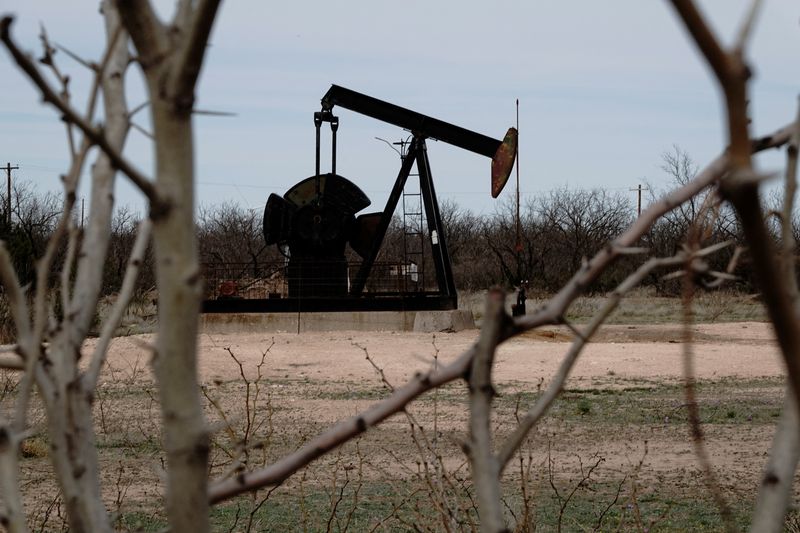
By Arunima Kumar
(Reuters) -Oil prices eased on Friday but were on track to register gains for a second straight week following a large cut in U.S. interest rates and declining global stockpiles.
Brent futures were down 51 cents, or 0.7%, at $74.37 a barrel at 1347 GMT while U.S. WTI crude futures fell 37 cents, or 0.5%, at $71.58.
Both benchmarks were up about 4% on the week.
Prices have recovered after Brent fell below $69 for the first time in nearly three years on Sept. 10.
“The market concluded that a sub-$70 level combined with hedge funds holding a record weak belief in higher prices of crude and fuel products would require a recession to be justified, a risk this week’s bumper U.S. rate cut helped reduce,” Ole Hansen, head of commodity strategy at Saxo Bank, said.
Prices rose more than 1% on Thursday, a day after the U.S. central bank’s decision to cut interest rates by half a percentage point.
Interest rate cuts typically boost economic activity and energy demand, but some analysts view them as symptomatic of a weak U.S. labour market.
“U.S. interest rate cuts have supported risk sentiment, weakened the dollar and supported crude this week,” said Giovanni Staunovo, an analyst at UBS.
“However, it takes time until rate cuts support economic activity and oil demand growth,” he added.
The Fed projected a further 50 basis points of rate cuts by the end of this year, a full percentage point of cuts next year and a further half-percentage-point reduction in 2026.
Additional support for oil prices came from a decline in U.S. crude inventories, which fell to a one-year low last week. [EIA/S]
A counter-seasonal oil market deficit of around 400,000 barrels per day (bpd) will support Brent crude prices in the $70 to $75 a barrel range during the next quarter, Citi analysts said on Thursday, though they added that prices could plunge in 2025.

Rising tensions in the Middle East, raising the risk of supply disruption, further boosted the oil market. Walkie-talkies used by militant Lebanese group Hezbollah exploded on Wednesday following explosions of pagers the previous day.
A slowing economy in major commodity consumer China, meanwhile, weighed on market sentiment. Refinery output in China slowed for a fifth straight month in August and industrial output growth hit a five-month low.
This post is originally published on INVESTING.


